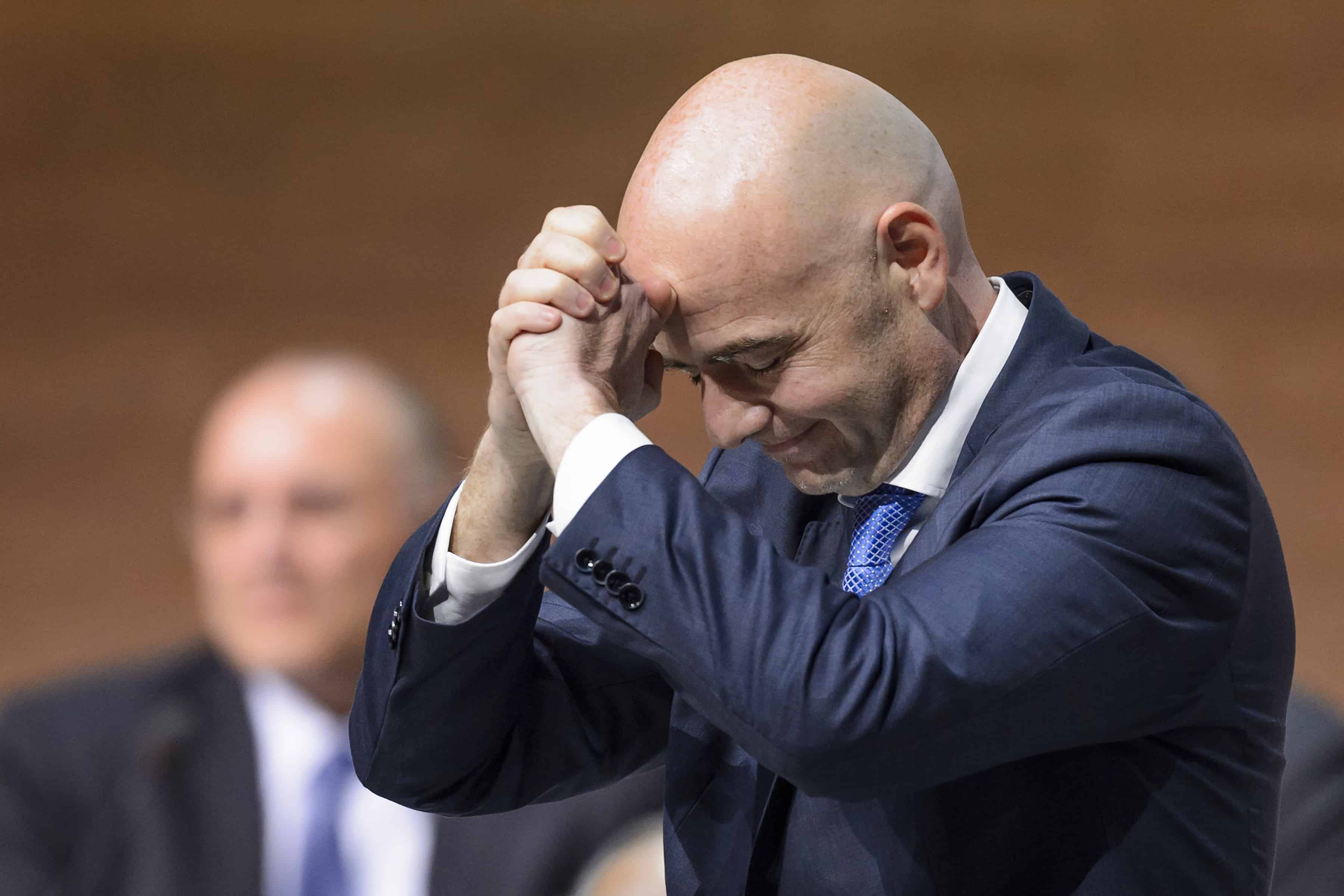Criticized and yet invincible, Gianni Infantino was re-elected on Thursday for a third and final term at the helm of FIFA, the body he has presided over since 2016, which will be his last chance to carry out multiple reforms he intends, at the risk of creating tensions and, at times, ending up renouncing them.
“Restore FIFA’s image” and “make soccer truly global”: the ambition of the 52-year-old Italian-Swiss, whose re-election was not at risk as he was the only candidate, is summed up nicely in those two phrases, repeated in several of his speeches in recent years, in which he also presents himself as the guarantor of fairness and justice in the most popular sport on the planet.
Without the scandals that precipitated in 2015 the end of his predecessor Sepp Blatter and then ended the hopes of former UEFA president Michel Platini to succeed him, few experts would have thought of this jurist with no sporting past to take the reins of the Zurich-based body.
Even more unexpected was the transformation of this man accustomed to the spotlight, UEFA general secretary between 2009 and 2016 after having climbed the various echelons of the body, and who vehemently defended himself against criticism for the World Cup in Qatar, a country that does not respect fundamental rights, by talking about his childhood, when he felt “discriminated against” for being a small Italian in Switzerland.
But with Blatter sunk by FIFA scandals and then Platini in disgrace for a payment of uncertain justification, the ‘eternal number 2’ rose to the top, being elected FIFA president in the second round in 2016 among five candidates. In 2019 he was re-elected, unchallenged, as happened again this Thursday.
Allegations of collusion
As a legacy he will leave in his favor the limitation of the presidency to three terms, a reform of the transfer system, the introduction of a maternity leave for female footballers, as well as a large increase in the institution’s revenue, which he then redistributes jointly and severally among the 211 national federations.
“We have been able to do this because in the new FIFA the money no longer evaporates, it goes to the right people,” he congratulated himself in December during the 72nd FIFA Congress in Doha.
This image of integrity was tarnished when proceedings were opened against him in July 2020 for “incitement to abuse of authority”, “violation of official secrecy” and “hindering criminal prosecution”.
The Swiss justice reproaches him for three secret meetings in 2016 and 2017 with Michael Lauber, then head of the federal prosecutor’s office. Those meetings fueled suspicions of collusion between the prosecution and FIFA, a civil party in most of the proceedings against former soccer leaders, including Blatter and Platini.
Infantino’s defense managed to recuse the prosecutor investigating the matter, but two other judges have taken up the case, closing last Thursday one of the cases, the one referring to an alleged “disloyal management” on a private plane flight made in 2017 by the leader.
Is it time for unity?
To develop the most popular sport in the world, this smooth-skulled polyglot, partially settled in Doha with his Lebanese wife and five children, has no shortage of ideas.
But in a soccer universe with complex balances between leagues, rich and poor federations, clubs, confederations, players and fans, many reproach him for lacking tact or trying to advance by force.
He has managed to increase the number of World Cup participants from 32 to 48 teams, not from 2022 as he wanted, but from the 2026 edition to be organized by the United States, Mexico and Canada, and under his mandate women’s soccer is experiencing a period of splendor.
However, he did not manage to implement a 24-team Club World Cup from 2021, which was presented as particularly lucrative and did not convince UEFA.
Finally, FIFA announced in December that it will be held from 2025, every four years and with 32 teams? All without consulting either the leagues or the clubs.
It was the same procedure that led him to consider a World Cup every two years, instead of the current four, but he had to give up in the face of strong opposition from the two main confederations (UEFA and CONMEBOL) and other soccer stakeholders, who feared a saturation of the already overloaded calendar.
Infantino then tried to be more open to dialogue: “We know that it is important to talk,” he said in Doha, promising “total respect” for soccer stakeholders if he retained the helm of FIFA.






